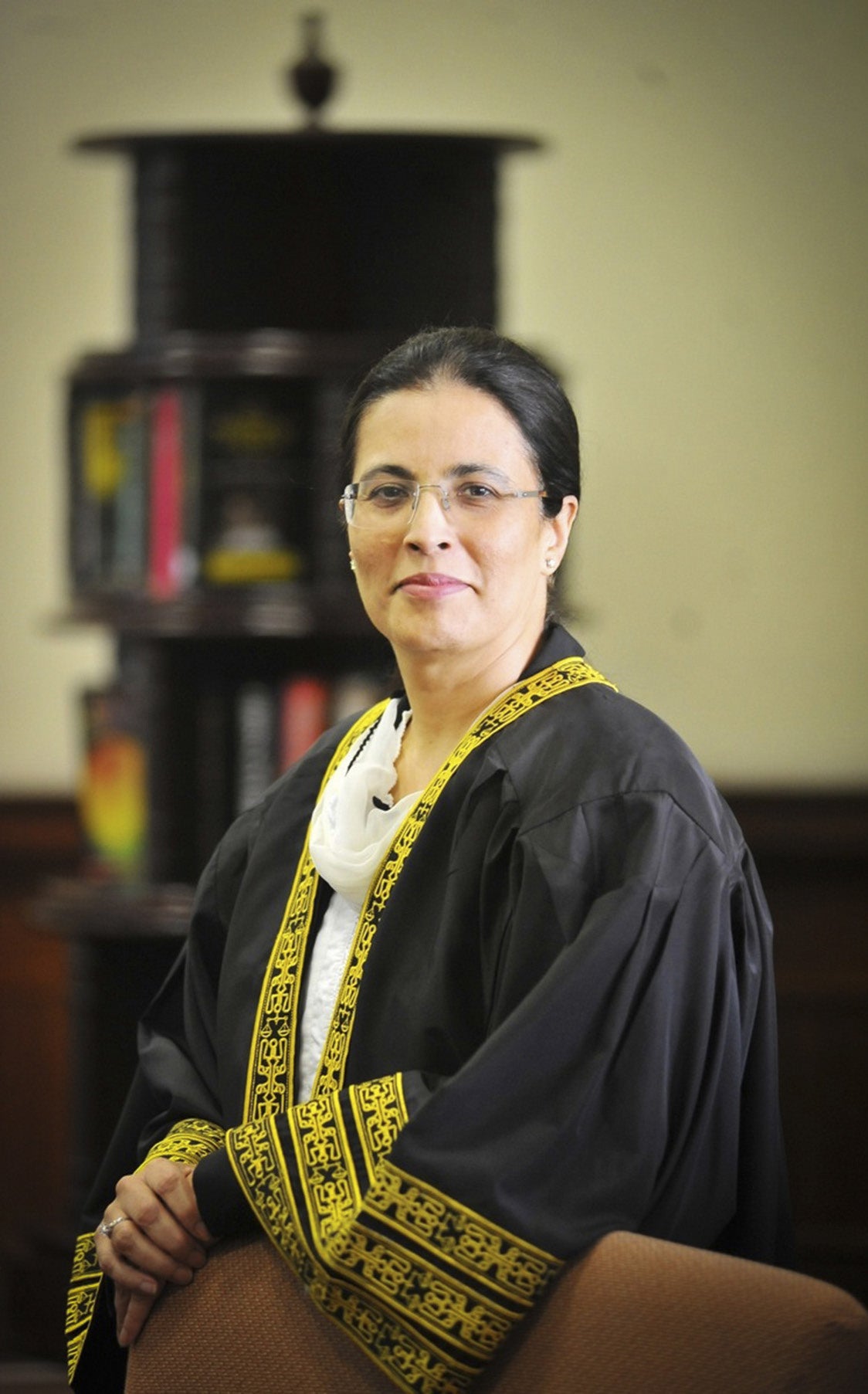In January 2022, Ayesha Malik LL.M. ’99 made international news when she became the first woman in Pakistan’s 75-year history to ascend to the nation’s highest court. The attention she received was overwhelming. Being the “first,” she explained in an interview for the Bulletin, meant she was responsible for not only opening the door to the possibility of women serving on Pakistan’s Supreme Court, but also ensuring that the door stays open for others to join her. “This is not a burden,” she said. “This is my calling.”
Her appointment was met with mixed reactions: relief and joy from advocates who noted that women account for less than 5% of judges sitting on Pakistan’s high courts, and critical opposition from some members of the nation’s legal community, who threatened to strike if Malik was elevated ahead of more senior male colleagues. Ultimately, support from Pakistan’s Chief Justice Gulzar Ahmed helped secure a 5-4 vote from Pakistan’s judicial commission to approve Malik’s nomination.
Malik never envisioned herself as a judiciary trailblazer. As a child, she had imagined being a Perry Mason-like criminal defense lawyer. Upon becoming a litigator, she discovered that there were few women arguing cases in court, and even fewer hearing them from the bench. “I realized that the profession needs more women for the scales to be balanced,” Malik said.
“This is not a burden,” she said. “This is my calling.”
She was guided by advice from her father, who had encouraged her, she said, to “make a difference and make my presence felt.” She began her career in corporate law and litigation at two firms in Karachi, and later taught banking law at the University of the Punjab and mercantile law at the College of Accounting and Management Sciences in Karachi. She was a law firm associate when she decided to pursue an LL.M. to gain acceptability and visibility in a profession that had historically excluded women. “I was able to instill confidence at work simply because I studied at HLS,” she said. Malik noted that when she later joined the Lahore High Court in Pakistan’s Punjab region and became its only female justice, people would just as frequently comment that she was also the Court’s only Harvard Law School graduate.
During Malik’s 10 years on the High Court, she heard a variety of cases on matters ranging from the enforcement of international arbitration in Pakistan to the environment. She also served on a national committee overseeing case management and as a member of a federal board that reviews cases involving foreigners detained in Pakistan.
She was guided by advice from her father, who had encouraged her, she said, to “make a difference and make my presence felt.” She began her career in corporate law and litigation at two firms in Karachi, and later taught banking law at the University of the Punjab and mercantile law at the College of Accounting and Management Sciences in Karachi. She was a law firm associate when she decided to pursue an LL.M. to gain acceptability and visibility in a profession that had historically excluded women. “I was able to instill confidence at work simply because I studied at HLS,” she said. Malik noted that when she later joined the Lahore High Court in Pakistan’s Punjab region and became its only female justice, people would just as frequently comment that she was also the Court’s only Harvard Law School graduate.
During Malik’s 10 years on the High Court, she heard a variety of cases on matters ranging from the enforcement of international arbitration in Pakistan to the environment. She also served on a national committee overseeing case management and as a member of a federal board that reviews cases involving foreigners detained in Pakistan.
But she garnered international headlines last year when she issued a 30-page ruling outlawing the use of virginity tests and hymen examinations in sexual assault cases. Such practices, she wrote, have no forensic value, violate Pakistan’s Constitution by discriminating on the basis of gender, and “[offend] the dignity of the female victim.”
It is no coincidence that women’s voices helped outlaw the practice, which the Punjab government had considered abolishing but ultimately failed to take up. In a virtual talk hosted this spring by the HLS Women’s Law Association, Malik explained that her unique position allowed her to “call out discrimination” and “point out where the system totally ignores women and the needs of women.”
Malik has used her position both inside and outside the courtroom to advocate for women in the legal system. She chaired a federal committee addressing issues relating to female judicial officers and initiated the Punjab Women Judges Conference in 2016, which helped lead to the introduction of courts aimed specifically at addressing gender-based violence, a gender equality policy at the Lahore High Court, and waiting rooms for women and children in courthouses. As a board member of the Punjab Judicial Academy, she has also trained judges locally and internationally on managing more gender-sensitive courts.
As the sole female member of Pakistan’s highest court, Malik will continue to gain attention as a woman in a space that previously had none — but she hopes she won’t be alone for long. “Bringing a different perspective and diverse reasoning creates greater public trust and confidence because it is reflective of the composition of society,” Malik said. “So while today I am one, hopefully in the future there will be more.”
